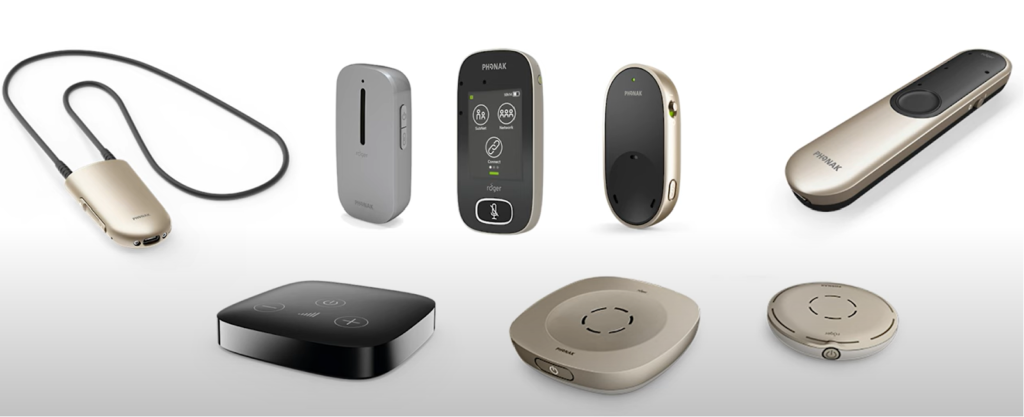What is Auditory Processing Disorder?
For anyone experiencing increased difficulty hearing speech or sounds, hearing loss is often the first thought.
However, in cases where a hearing test indicates that the hearing is intact, and a build-up of ear wax isn’t the problem, we can look at the possibility of Auditory Processing Disorder (APD).
Whilst some of the symptoms may appear the same, Auditory Processing Disorder is a condition of its own and it affects around 0.5 to 1% of the population.
This blog aims to provide a detailed overview of APD, exploring its potential causes, diagnosis and treatment methods.
Understanding Auditory Processing Disorder
Auditory Processing Disorder, or APD for short, is a lesser-known condition that affects how speech and sounds are processed.
It’s a neurological condition that affects the brain’s ability to process auditory information effectively but unlike hearing loss, the ears are undamaged. Whilst the ears may detect sounds normally, the brain has difficulty interpreting and organising these sounds into meaningful information.
This means that an individual with APD may mishear words, have difficulty hearing with background noise and take longer to respond during communication whilst the brain processes what was said.
Auditory Processing Disorder can present a debilitating set of challenges related to speech and language development, learning, and overall communication. This can have a great impact on various aspects of life including social interactions, academic performance and emotional well-being.

What causes Auditory Processing Disorder?
The exact causes of Auditory Processing Disorder are not fully understood, but research has shown possible links between various genetic, environmental, and developmental factors.
Some of these factors include recurrent ear infections during early childhood, complications during birth, or traumatic head injuries, which may increase the likelihood of developing APD.
Whilst the condition is typically associated with childhood development, research has shown that it can also manifest in adults and therefore affect anyone at any age. Similarly, it’s not conclusive how this happens but research indicates that it may be influenced by changes in cognitive function or ageing.
How to know if you have Auditory Processing Disorder
Identifying Auditory Processing Disorder can be challenging, especially as its symptoms can often overlap with other conditions such as attention deficit hyperactivity disorder (ADHD), hearing loss or learning disabilities.
However, some common signs and symptoms of APD include:
- Difficulty understanding speech in noisy environments – It’s common for those with APD to struggle with filtering out background noise, making it difficult to focus on and understand spoken words.
- Poor listening skills – Struggling to pay attention during conversations and lectures or speeches is common for individuals with APD. This can lead to misunderstandings and reduced information retention.
- Trouble following verbal instructions – APD can make listening to and processing spoken instructions, especially in complex or lengthy sentences, a challenge.
- Language and communication barriers – Particularly in childhood, APD may contribute to delays in language development and those suffering may have trouble expressing themselves verbally, or struggle with reading and spelling.

Testing for Auditory Processing Disorder
If you believe you are suffering from Auditory Processing Disorder, it’s important to get a diagnosis as early as possible.
As the symptoms may be similar to those of hearing loss, getting your hearing tested should be the first step taken. That being said, APD is often a misunderstood condition so it’s crucial that you seek the help of a professional that is experienced in this field to get an accurate diagnosis of your condition.
Harley Street Hearing’s clinical audiologists are highly experienced in testing for and treating Auditory Processing Disorder in both adults and children. We use a special battery of speech-processing tests that measure your active listening skills and can recommend the best treatment option to support you.
How to treat Auditory Processing Disorder
Currently, there is no ‘cure’ for APD, but management strategies can be implemented to address the specific needs and challenges of the individual and help them perform better in the listening environments where they struggle the most.
Some common management strategies include:
- Hearing devices – Whilst hearing aids aren’t generally considered a primary treatment for APD, specialised hearing devices or remote microphones that reduce background noise and enhance the sound signal may help to improve their ability to process sounds.
- Speech and listening exercises – Therapy and exercises can help to rework neural connections in the brain, improving communication skills and listening abilities.
- Cognitive Behavioural Therapy – This is a therapeutic approach that may be recommended to help individuals manage the emotional and social challenges associated with APD, helping to improve their self-confidence.

Self-help strategies for APD
Whilst it’s essential to get your hearing assessed and get an accurate diagnosis for your individual struggles, getting an appointment to see a professional straight away may not always be feasible, although if you are in the London area at Harley Street Hearing we generally have appointments available within 48 hours.
In the meantime, there are strategies that can be implemented in order to help make communication and speech reception easier. Below are a few tips that might help you:
- Avoid noisy environments – Try to find quieter locations to have conversations where possible. If you do find yourself in a noisy environment, try to stand with your back to the noise source to help block it out.
- Face the conversation – When communicating with others, directly facing the person speaking to you will give you the best chance of following what they are saying.
- Position yourself in good lighting – Try to have conversations in well-lit environments so that the other person’s face is fully visible for any lip-reading cues you may need.
- Stand close – It’s advisable to stand or sit around 1 metre away from the person you are talking to and avoid having conversations across the room.
- Be open – Always be honest with the person you’re conversing with about your communication struggles so that they are aware and can help by doing things such as avoiding covering their mouth and rephrasing any words you may not understand.
The above strategies should offer some short-term improvements before you can get professional help. If you’re having difficulties with your hearing and communication and think you may be experiencing APD, get in touch with Harley Street Hearing for a consultation with one of our highly trained clinical audiologists.
Enjoy this article? You might be interested in some of our others:












